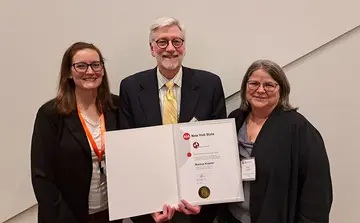Fabian signs book contract with Cambridge University Press

Dr. Steven Fabian, professor of History
Dr. Steven Fabian of the Department of History recently signed a book contract with Cambridge University Press, the oldest printing and publishing house in the world and the oldest university press.
Fabian’s manuscript, “Making Identity on the Swahili Coast: Urban Life, Community, and Belonging in Bagamoyo,” will be the inaugural volume of a new series called “African Identities: Past and Present” edited by Dr. Carina Ray of Brandeis University and Dr. Toyin Falola of the University of Texas at Austin.
The research is drawn from archival and oral sources found in Tanzania, Great Britain, France, Germany, and the United States and focuses on the period between the 1840s and the 1960s. Fabian’s book seeks a new framework for understanding community and identity historically along the Swahili coast, arguing that it is time to expand scholarly focus from just the Swahili to include other groups – Africans, Asians, Europeans. People who inhabited the coast had a stronger sense of what united them spatially than they did culturally. Fabian uses locality to investigate its influence on how diverse communities behaved in a single town, seeking to understand how different groups of people came to identify themselves with a particular place in common. He argues that everyday life was a phenomenon that facilitated the emergence of a spatial identity – the Wabagamoyo (the people of Bagamoyo) – out of multiple communities. He examines how people “localized” in Bagamoyo, meaning not only how they strengthened their roots by joining various social networks and investing in the town, but also how they shared a socio-spatial frame of reference in daily conversations and neighborhood gossip about what transpired in their shared spaces. Marketplaces, streets, wells, public squares, the beach, houses of worship, and public courts functioned as sites where locals learned or created mutual references – a common vocabulary – which led to the development and reinforcement of community identity.
By examining the news which was disseminated at these places, or the events which occurred there, Fabian shifts the focus from Swahili culture to the spaces themselves. At the same time, a spatial framework still reveals how people of different backgrounds clashed with one another, but in ways which crossed racial, ethnic, class, and gender categories. The study of identity in African history often privileges ethnicity over spatial, or urban, community. By telling a story from the perspective of place, it is Fabian’s hope to re-situate an understanding of East African coastal urbanism by freeing it from the default framework of Swahili culture in order to give all the town’s stakeholders their proper due.



